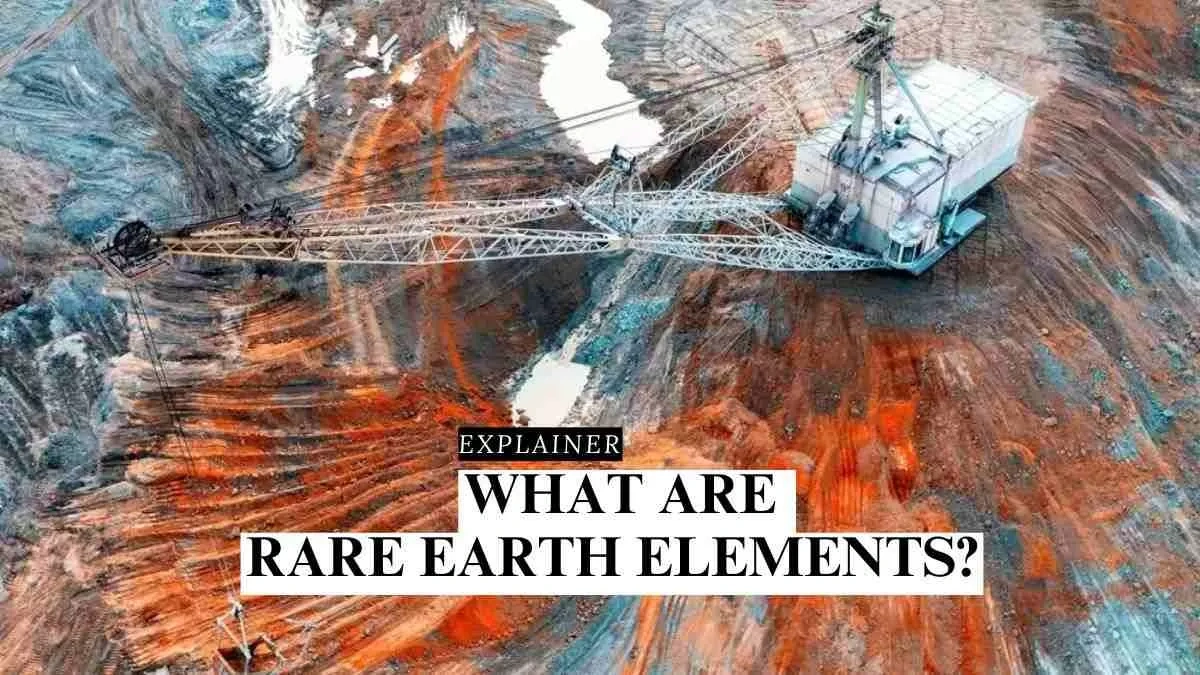So, the EU is worried about China potentially tightening the screws on rare-earth exports . Big news, right? But the real question is: why should you care? Let’s be honest, unless you’re a trade wonk or deeply invested in global supply chains, this might seem like another dry headline. But trust me, this has implications that ripple all the way down to the tech in your pocket and the future of manufacturing in India.
The Geopolitical Chessboard | Why Rare Earths Matter

Here’s the thing: rare earth elements (REEs) aren’t actually that rare, geologically speaking. They’re just… difficult and dirty to extract. And for a long time, China has dominated the global rare earth market, controlling a huge chunk of both mining and processing. This has given them significant leverage, and that’s what worries the EU (and, frankly, a lot of other countries).
Why the fuss? Well, these elements are crucial for everything from smartphones and electric vehicles to wind turbines and military hardware. Basically, the modern world runs on them. A disruption to the supply of critical minerals could cripple industries and send shockwaves through the global economy. Consider, for example, the manufacturing of semiconductors, where these materials play a vital role. Or the burgeoning electric vehicle industry, where their use is even more pronounced.
Let me rephrase that for clarity: Imagine if your phone suddenly became ten times more expensive, or if the waiting list for an EV stretched out for years. That’s the kind of scenario we’re talking about.
India’s Position | A Strategic Opportunity?
Now, where does India fit into all of this? This is where it gets interesting. India has significant rare earth reserves of its own. But here’s the catch: exploiting them requires investment, technology, and a commitment to environmentally sustainable practices. A common mistake I see is India underestimating the environmental impact of rare earth mining .
This situation presents both a challenge and an opportunity. On the one hand, India is vulnerable to the same supply chain disruptions as everyone else. But on the other hand, it has the potential to become a major player in the rare earth market, reducing its reliance on China and boosting its own economy. India could become a crucial part of the alternative supply chain for countries seeking to diversify their sources of rare earth minerals.
But, India needs to act strategically. This means investing in research and development, attracting foreign investment, and developing a clear regulatory framework that balances economic growth with environmental protection. It’s a complex balancing act, to be sure.
The EU’s Options | Diversification and Diplomacy
So, what is the EU doing about all this? According to a recent statement by the Trade Chief, they’re exploring all options, including:diplomatic pressure, trade agreements with other resource-rich countries, and investment in domestic mining and processing. The EU is looking to avoid over-reliance on single suppliers. This push for supply chain resilience is also visible in the US and other developed economies.
Diversification is key. The EU can’t just swap one dominant supplier for another. It needs a portfolio of sources, including countries like Australia, Brazil, and, yes, even India. But diplomatic efforts are also essential, and the EU must engage with China to ensure fair and transparent trade practices. What fascinates me is how this situation highlights the interconnectedness of the global economy. A decision made in Beijing can have profound consequences in Brussels, Delhi, and beyond.
But it will also require investment in recycling rare earth elements . Extracting REEs from electronics waste is a more sustainable approach and reduces the reliance on traditional mining. It is also crucial to develop substitutes for rare earth elements where possible. This needs innovation and research, but could drastically change the landscape.
Looking Ahead | A More Sustainable Future?
Ultimately, the EU’s concerns about China’s rare-earth export restrictions are a wake-up call. They highlight the need for a more diversified, resilient, and sustainable global supply chain. This isn’t just about economics; it’s about security, innovation, and the future of our planet.
And for India, this presents a unique opportunity to step up and become a responsible leader in the rare earth industry . The decisions made today will shape the landscape for decades to come. It is an inflection point for trade across the world.
I initially thought this was straightforward, but then I realized the depth of this issue. It’s a reminder that even seemingly technical trade disputes can have a huge impact on our daily lives. It might even be a good idea to start investing in Indian rare earth stocks. Here’s hoping we can navigate this challenge with wisdom and foresight. Speaking of investments, do read about PCE to know more.
FAQ | Rare Earth Export Controls
Why are rare earth elements so important?
They’re essential for manufacturing many high-tech products, including smartphones, electric vehicles, and renewable energy technologies.
What are rare-earth export restrictions?
These are limitations imposed by a country on the amount of rare earth elements that can be exported.
Why is the EU concerned about China’s rare-earth export policies?
China is a major producer of rare earth elements, and restrictions on exports could disrupt supply chains and harm the EU’s economy.
What can the EU do to address this concern?
The EU can diversify its sources of rare earth elements, invest in domestic mining and processing, and engage in diplomatic efforts with China.
Does India have rare earth resources?
Yes, India has significant rare earth reserves and the potential to become a major player in the global market.
What are the challenges in developing India’s rare earth industry?
Challenges include attracting investment, developing sustainable mining practices, and creating a clear regulatory framework. In addition, the dependence on Chinese refining capacity needs to be addressed.




